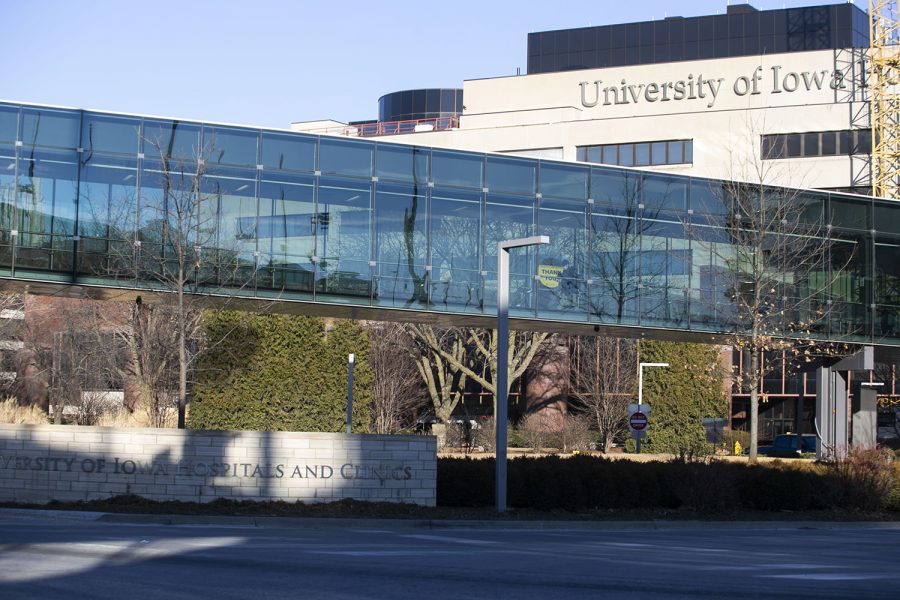UIHC to owe employees financial compensation after court upholds lawsuit claiming late payments
The class action lawsuit, first filed by UIHC employees in 2019, claimed the employer failed to dole out payments within 12 days of the payment period, violating state law.
University of Iowa Hospitals and Clinics is seen on Tuesday, Feb. 15, 2022.
March 30, 2022
University of Iowa Hospitals and Clinics will owe thousands of employees financial compensation after a federal judge ruled in favor of a lawsuit accusing UIHC of failing to pay employees within the legal time frame.
In the U.S. District Court in the Southern District of Iowa, Judge Stephanie Rose ruled in favor of two claims and denied one claim in the lawsuit against the Iowa state Board of Regents, who represented UIHC. Spokespeople for the regents and UIHC declined to comment on the ruling.
The class-action lawsuit was filed by UIHC workers on Aug.19, 2019, and estimates as many as 8,000 workers were affected. The lawsuit claimed that UIHC paid employees later than required by law and also paid out vacation and sick benefits “beyond the legally permissible time limit,” according to court documents.
According to Iowa Code, employers must pay their employees within 12 days of the payment period.
Prior to Nov. 1, 2020, UIHC had two payment structures — one for those eligible for payments under the Fair Labor Standards Act and one for those ineligible under the act.
For those under the Fair Labor Standards Act, pay periods extended from the first to the last of the month, and any wage adjustments, such as overtime or time without pay, would be added onto the next month.
Those not eligible for Fair Labor Standards Act benefits could work up to 240 hours over the course of six weeks at a predetermined base rate. Those workers also did not get bonus pay until the following month.
Following the 2019 lawsuit, former UIHC CEO Suresh Gunasekaran stated those operating under a monthly pay basis would switch to biweekly. Those originally paid for up to 240 hours for six weeks would be paid up to 160 hours over four weeks.
Gunasekaran said in a live-streamed talk to UIHC employees that these changes would comply with the requirement of “regular paydays within twelve days after the end of the pay period,” documents stated.
The court ultimately ruled that UIHC paid employees one month after the pay period and therefore required that workers be paid “liquidated damages.” According to Cornell Law, liquidated damages are put in place as punishment for failing to keep contract terms. The exact amount owed was not specified.
UIHC admitted to late payments, but stated that employees had agreed to later payments in collective bargaining and other contracts. The court ruled, however, that the regents failed to provide an actual written agreement between the regents and UIHC employees as proof.
“The Board points to offer letters signed by some of the named Plaintiffs which refer to other documents, but, as demonstrated below, none of those documents include an agreement to pay employees late,” court documents state.
The court denied the plantiffs’ claim that UIHC did not pay employees vacation and sick leave in a timely manner, stating that the plaintiffs did not provide significant proof of untimely payments, and UIHC’s policies of doling out payments upon termination were followed.



